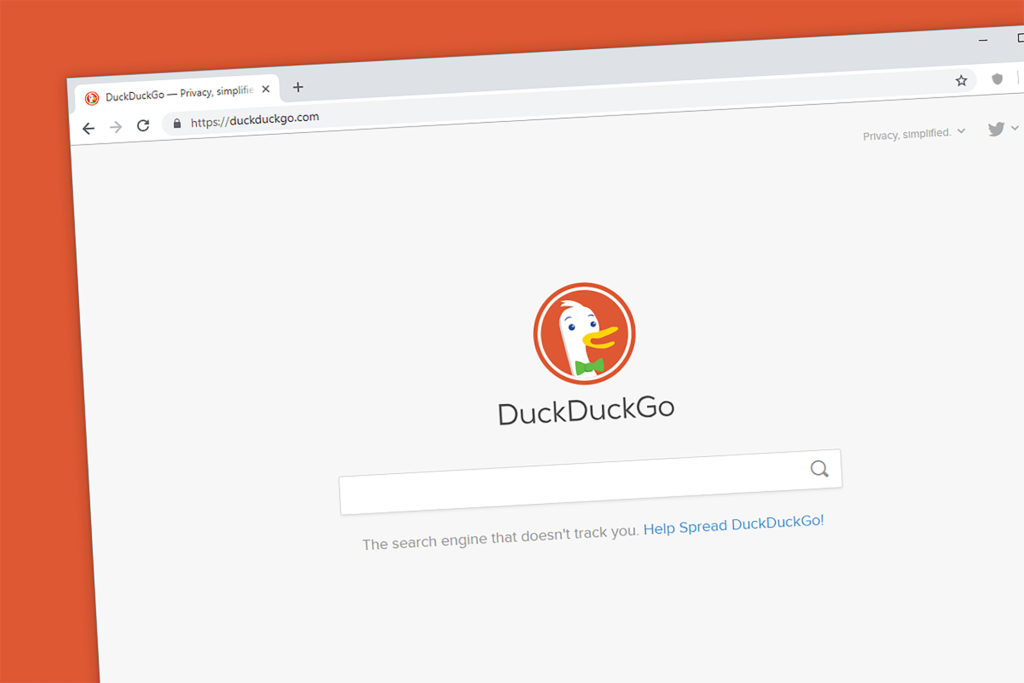Google knows a whole lot about us. It carries out over 40,000 searches a second – and all of the details of these searches are logged for the company's benefit. Maybe you think a search engine shouldn't have that much reach in our lives? There are options to make your searches private – but how private are they?
To perform a private Google search, users should leverage the Tor web browser without a Google account. Popular search engines like Startpage and Searx provide Google results anonymously. The private browsing tab or Incognito mode clears browsing history and data when closed.
Learn how to sidestep all this monitoring and keep your searches genuinely private. The first question to ask yourself: Do all my searches need to be on Google?

It's Your Fault Google Is The #1 Search Engine
Google's search engine is excellent. And it should be: they've spent enough money on it.
This search segment of Alphabet (Google's parent company) boasts superior features such as
a personalized user experience
an extremely easy-to-use interface
the most cutting-edge search algorithms
continuously evolves to discover the most relevant results
There's no wonder it's still so popular, despite its shortcomings in privacy. We continue to give almost 85% of our searches worldwide to the company! Online privacy has never been such a hot topic, particularly considering data breaches are at an all-time high. Still, somehow the convenience of Google overrides our collective misgivings regarding privacy.
I don't have anything against the company per se: it is a fantastic tool. I do feel that we collectively downplay the importance of privacy at times.
Here's Why
Google has a commercial imperative to sell ads. Research shows that most people do not scroll to the bottom of the first page of search results and spend little time on content below the visible limit of their screens – also known as the fold.
Anything above the fold is more lucrative, so much of that space is taken up by paid ads.
If you do a Google search for "buy shirts," you will have to scroll down to see organic results. While some might argue that the paid results are helpful and save time, it is clear that those results are designed to favor advertisers, which will, in turn, influence behavior.
So, can't you use Google Chrome's Incognito or a private browsing tab?

Incognito Mode or Private Tabs are Not Private
Judging from several conversations I've had, most people think that switching to Incognito or InPrivate hides all their online activity from prying eyes. Simply not true.
In its description of Incognito mode, the Google Chrome browser is relatively upfront about its limitations:
Chrome won't save the following information: Your browsing history, cookies and site data, [or] information entered in forms. Your activity might still be visible to: Websites that you visit, your employer or school, [or] your Internet service provider.'
It's essential to differentiate between two types of anonymity: local and online. The distinction depends on where your online searches and activities are recorded.
Evidence of your activity can be stored locally on your computer – this is the case for your browser history, cookies, saved passwords, and the like.
In contrast, online anonymity by online trackers, browser extensions, search engines, internet service providers (ISPs), cybercriminals, or even government agencies.
Google Chrome's Incognito mode, Microsoft Edge's InPrivate browsing, and other browsers' "private" tab feature usually give users local anonymity. Details of your online searches are deleted when the tab or window is closed, thus removing the history from the local device.
However, your data is still visible to the other actors mentioned above whenever you're online. Your device's IP address, general location, operating system, and additional metadata are logged and available for data mining regardless of your browser's privacy mode.
The same applies to Bing, Yahoo, and other big tech search engines.
Private browsing tabs and windows do not fully protect your browsing history.
Side Note: The browser that I recommended is Brave, which comes with a fantastic feature that other browsers don't have: Private Tabs with Tor. Using this type of private tab does a better job at hiding your Google searches and other online activities.
The proof that private tabs are not private is in Google's privacy guidelines and the courts. A judge in California recently ruled that Google has to face a class-action lawsuit that claims it secretly collects information from users, even when they switch to Incognito mode.
Switch To Alternative Search Engines
While Google, Bing, and Yahoo are stalwart search engines, if you want to protect your privacy online, there are other much more effective search sites for you. They protect the confidentiality of your search history. Some also help you break out of the filter bubble by using a different search index.
Search Engines That Give Google Results
Searx
Searx is better than Google when it comes to filter bubbles and privacy. It searches a range of search engines on your behalf. You can enable Google in Searx and use it without giving up your personal information. The search results are non-individualized and unbiased; it doesn't know anything about its users.
There are downsides:
Searx doesn't offer search suggestions or extra image filter options.
Searx is federated or decentralized. You need to trust the volunteer hosting the Searx instance with your search history.
StartPage
This privacy-focused search engine is designed to deliver comprehensive and diverse results like Google without unwanted third-party cookies, targeted ads, or tracking.
Start Page is based in the Netherlands and is independently audited by EuroPriSe, a certifying authority backed by multiple European privacy organizations.
Another excellent feature is its Anonymous View which protects you against tracking by acting as a buffer between you and the results web page you want to visit.
Search Engines With Non-Google Results Or Indicies
Brave Search
Brave Search is my favorite go-to search engine. Developed by the same company to produce the Brave Browser, it promises not to log personal data like IP addresses and browsing activity. It helps me block trackers that follow internet users from one website to another. I can also customize my privacy settings.
DuckDuckGo
If you need more comprehensive search results and customizations, check out DuckDuckGo.
This search engine advertises that it doesn't track your IP and logs search queries that may identify you. Search terms are only recorded to track trends and enhance search results while keeping your session private.
DuckDuckGo's browser extension also helps block trackers on any sites you visit. This handy addition shows which trackers have been blocked and can notify you about any untoward privacy policy or practice. You can also use it in combination with other privacy extensions.
The only drawback is DDG uses Microsoft's Bing results and ad network to show ads on the results page. These ads are not based on your search activity or personal search, and you can be disabled.
Qwant
This is another privacy-focused search engine based in France. It promises to keep your browsing habits secret and helps protect you from getting sucked into a filter bubble. It is governed by data privacy regulations that are much tougher than those in many other countries, including the US.
Other noteworthy search engines with good for privacy include:
Notice how easy it is to read these privacy policies 👆. Generally, it's a good indicator of a company that cares about your privacy. 👍

(My Recommended) Best Alternative Search Engines
Using any of these alternative search engines will considerably enhance your privacy online. Typically, your activity is not recorded, and your information does not create a profile used to show you ads.
My top search engines are also easy to use and return comprehensive and diverse search results.
I use Brave Search because of its focus on privacy; it supports keyboard shortcuts known as "bangs," which allow me to search other websites directly. For instance, if I want to visit the Wikipedia article for lion, I type: !w lion, and it takes me there.
I'll sometimes fall back to using DuckDuckGo (instead of Bing). If I need Google results, I'll use a !sp bang to search StartPage.
If I need to visit Google, I'll use a VPN, like Mullvad or the Tor browser.
How To Switch Default Search Engines
When you enter a search query (not a website address) in the top browser bar, your default search engine is given the query. Most are set to Google, but you can change this:
In Google Chrome
Open Chrome
In the upper right of the new window, click the three-dots icon to open the menu
Click 'Settings'
Open the drop-down menu to the right of 'Search engine used in the address bar'
Select a new default search bar
These instructions should work for other Chromium-based browsers like Microsoft Edge and my recommended Brave browser.
In Firefox
Open Firefox
Click the 'three lines' icon
Select 'Options'
Click 'Search' in the left sidebar
Scroll down and click the drop-down menu under 'Default Search Engine'
Select a search engine to use as the default